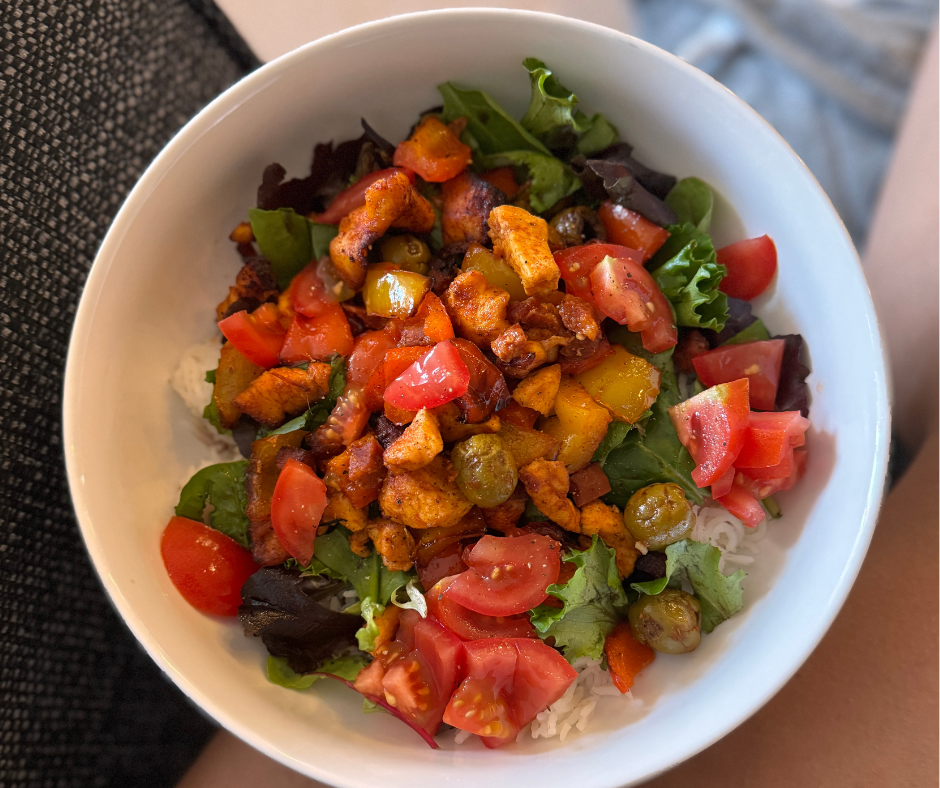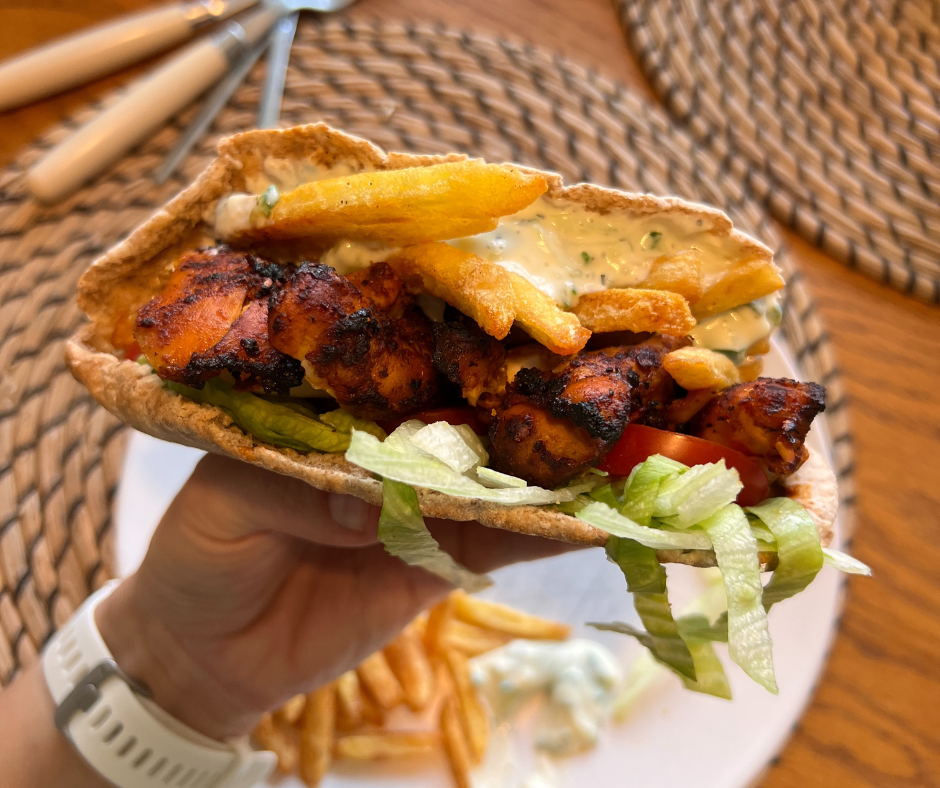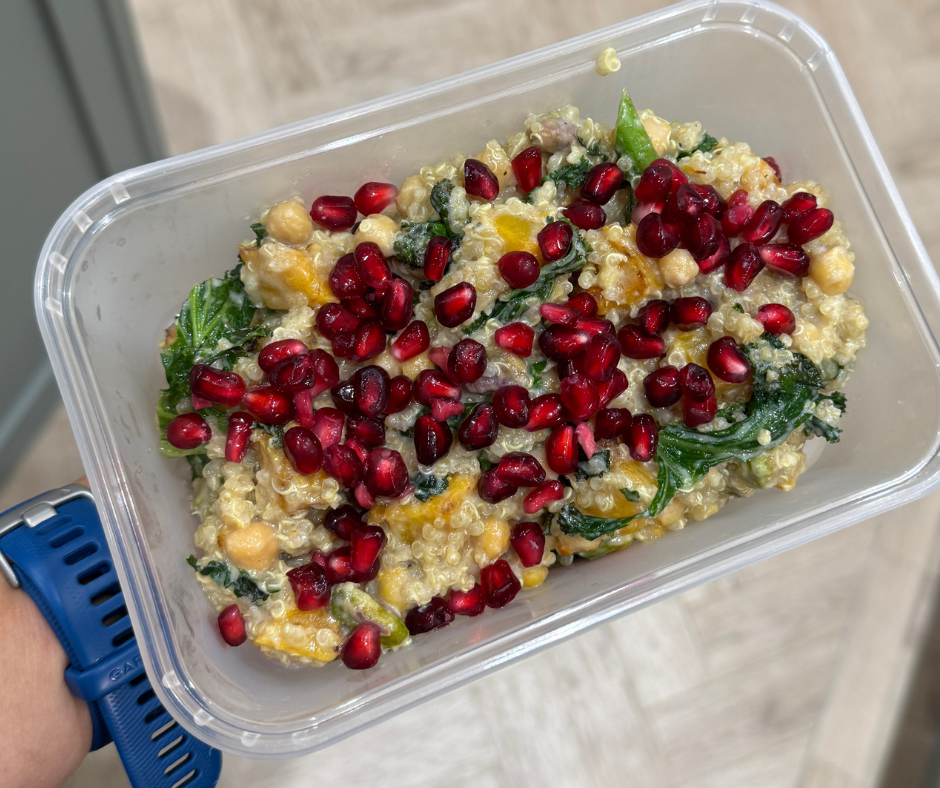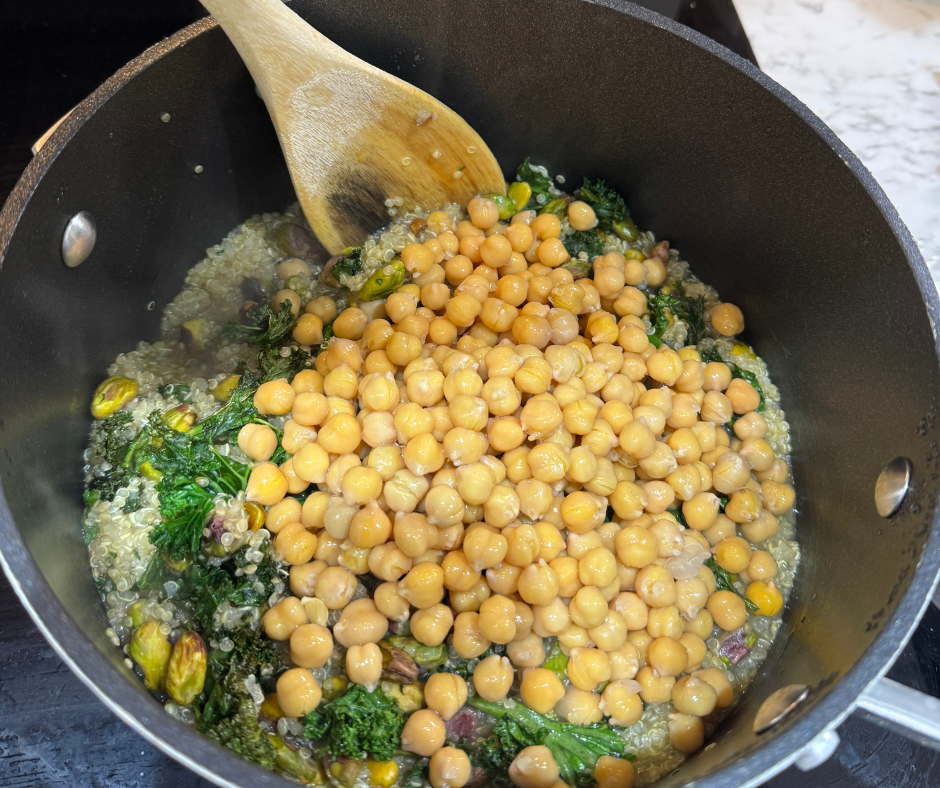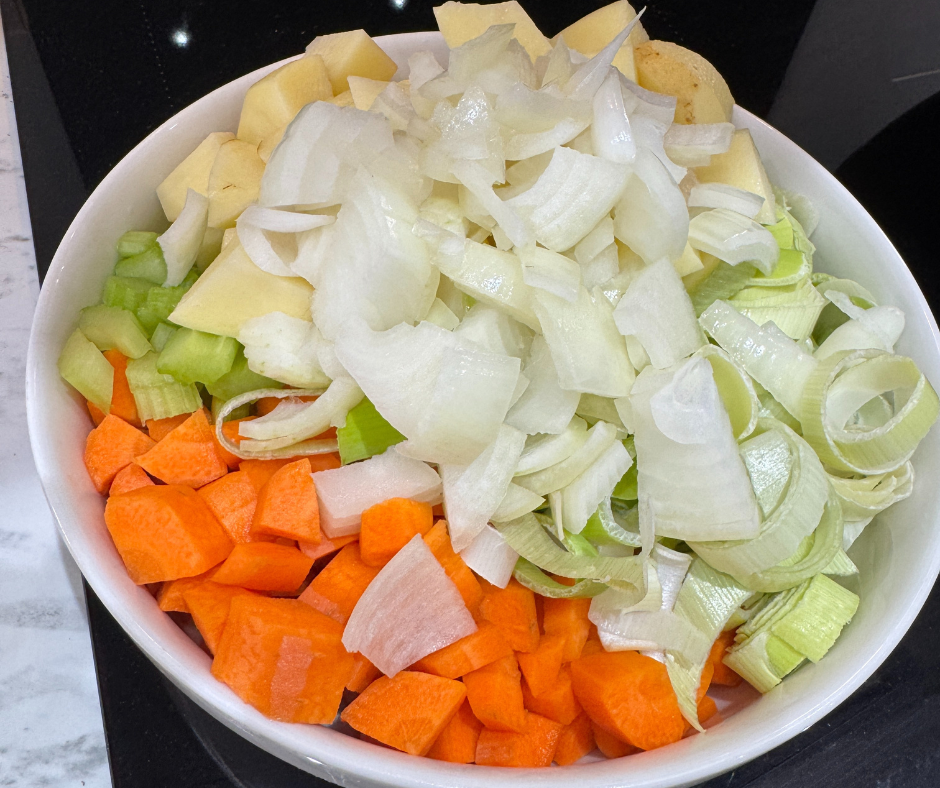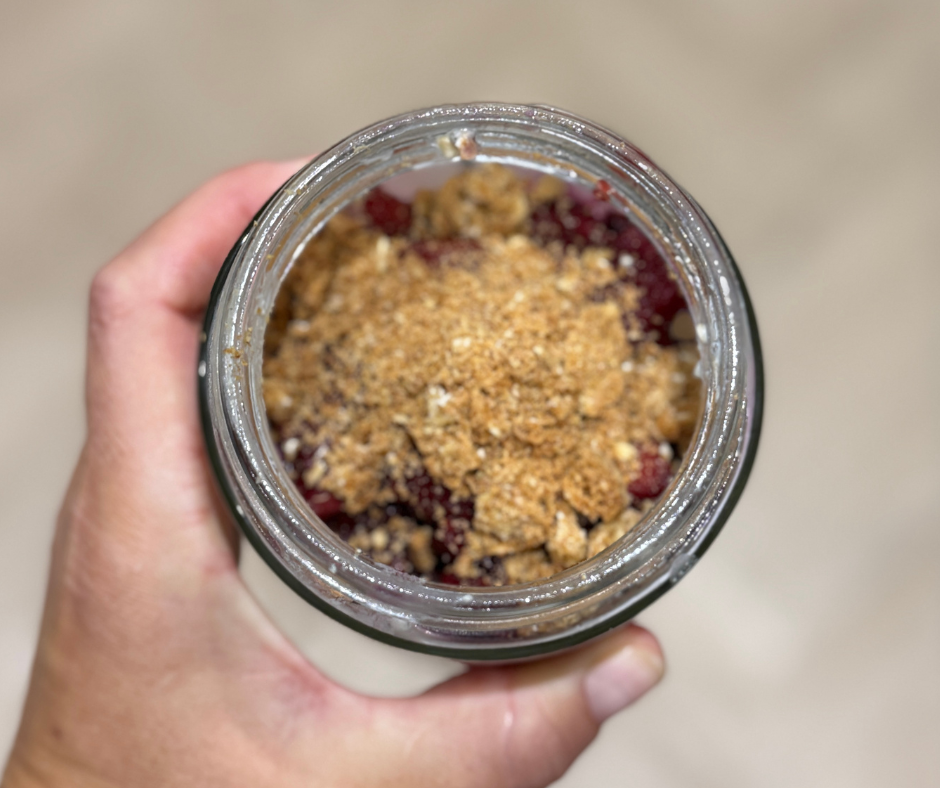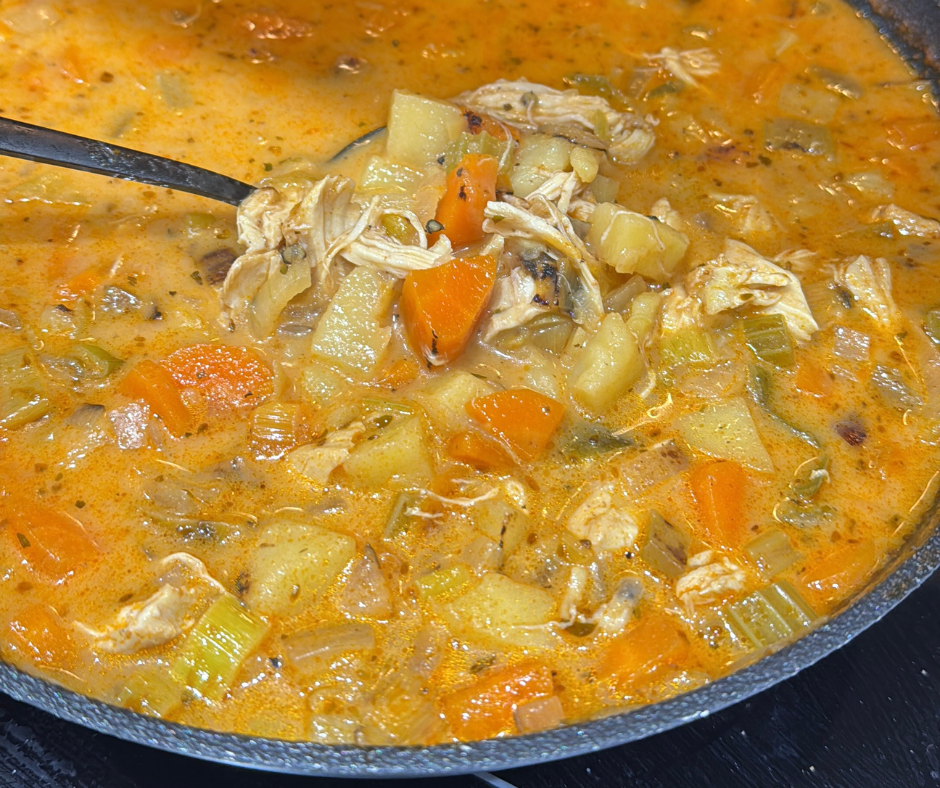Changing My Diet as a Runner in Perimenopause
Do you notice that you can't get away with things you used to since being perimenopausal?
I absolutely feel that way with movement and food.
I can’t get away with missing workouts,
and I can’t get away with eating too much beige, highly processed food,
if I want to feel my best, physically and mentally.
I have a pretty good diet: high protein, high fruit and veg, wholegrains.
And I pretty much follow the 80/20 guide with whole foods vs processed.
But,
when I run or increase cardio,
my hunger levels go through the roof!
And the cereal comes out a few times a day.
There’s nothing wrong with snacking, in moderation,
but when it doesn’t leave me feeling good,
something needs to change.
I want to break this habit as we go into winter.
I want to fuel for health and performance.
And not just survive on sugar throughout the day for energy.
The World’s “Healthiest” Diet
After an amazing holiday to Santorini, I wanted to take inspiration from the Mediterranean diet.
There is solid research behind the Mediterranean way of eating, including a wealth of peer-reviewed studies (check out the links below).
One big review pulled together all the evidence
and found that people who stick more closely to this kind of diet
tend to have lower rates of things like heart disease, type 2 diabetes, and even some age-related brain conditions.
It’s also been linked to living longer.
That all feels like a good side effect of eating colourful food.
I didn’t want to overhaul my whole diet.
But instead, take inspiration from the Mediterranean way of eating.
I know that making sensible tweaks gradually over time means I’ll stick to the changes
and maintain a healthy relationship with food.
Over-Restrictive Diets
Over-restrictive diets can leave you with a worse relationship with food, which might look like:
Guilt around certain foods.
Skipping meals.
Avoiding carbs or certain food groups.
Seeing foods as bad.
Beating yourself up for enjoying something sweet.
Perimenopause & Diets
I see perimenopause as an opportunity to refresh our lifestyle and do things that help us feel our best.
These questions could help you decide if a certain diet or way of eating is right for you…
Does it help you feel your best?
Do you feel energised?
Do you smash your workouts and perform well?
How’s your mood? Are you Hangry?
Are you getting enough protein (20-30g per meal) so that your muscles don't break down? (super important for women over the age of 30, as there is a natural decline)
Does it interrupt family meals or social occasions?
How I’m Making Changes Without Restriction
I took a closer look at what the Med Diet consists of to start gradually including those foods in my meals.
Here are the things I decided to focus on…
Flexible eating: no strict rules and not cutting out things.
More preparation for breakfasts and lunches.
Building meals with Mediterranean inspiration: colourful plants, good-quality fats, lean proteins, herbs and spices.
I then started looking for recipes and inspiration to help me with this.
I came across Dr Hazel Wallace (a Women’s Health Nutritionist) on Instagram.
After trying these scrambled oats,
I was hooked on looking for more inspiration from her.
I then tried the ‘Chicken Soup for the Soul’, and oh my, I loved it!
When I went looking for the next thing to try,
I noticed that Dr Wallace offers a monthly subscription hub to recipes, meal plans, webinars and articles: https://www.thefoodmedic.co.uk/.
This isn’t sponsored by the way - just me sharing something I’m finding useful.
I jumped straight in, ordered a Tesco shop, and this week I’m trying some more of the recipes.
I’m trying a few meal-prep recipes for breakfasts and lunches to start,
I don’t want to overwhelm myself with too many changes at once.
I’m hoping this is a way for me to fuel my strength workouts and runs with better breakfasts and lunches.
There’s nothing wrong with cereal and snacking,
Sugar and carbs are needed for running fuel,
so I won’t be totally cutting things out,
but I want to feel better from nourishing my body during the day.
It feels so nice that the recipes are filling, nutritious, seasonal, and warming as we head into winter.
Food Prep
I absolutely hate doing food prep,
but I’m forcing myself to do it!
I picked this ‘Autumnal Quinoa Salad’ lunch recipe from the Hub
because I want a more nourishing lunch that is warm (cuz 🥶 brrrr, winter is officially here in the UK)
And I’ll be totally honest - I thought I would hate it 🥴
Mainly because it has chickpeas and kale in, haha!
But
OMG!
The flavours! 🤤
I didn’t love prepping it the first time…
It wasn’t complicated; it’s just something I do not enjoy.
Next time, I’m going to buy ready-cut butternut squash
Because it took me 10 minutes to peel and cut the whole one I got (I’m a little bit dangerous with a knife, I have so many hand scars from cooking).
That will make the prep so much easier and quicker.
It was totally worth it, by the way.
The quinoa salad warmed up each day is delish!
Having 4 days of lunches and breakfasts prepped in the fridge has felt amazing!
Protein, Carbs & Fats
I aim for 25-30g of protein per meal (x3) to keep my muscles strong,
especially now, when hormone shifts make it harder to build and maintain muscle.
It's all about giving my body what it needs to trigger muscle repair and growth - muscle is life.
Every meal so far has had at least 20g of protein, a great balance of carbs and healthy fats, and has been amazing for fibre, too.
Yesterday, using one of the breakfast and lunch recipes from the hub, I’d hit 22g of fibre.
I usually struggle to hit that over a full day.
Resistance to Change
I can be a little stuck in my ways
and feel resistance to buying foods like quinoa, kale, and chickpeas.
Mainly because when I’ve tried in the past, they’ve gone to waste.
But having the tasty recipes to use them in is totally different to me just trying to eat them in my usual meals or inventing my own recipes.
Having this range of plant-based ingredients will be great for my gut health.
So far the flavours have been really nice, so I’m sticking with it.
Gradual Diet Changes
I will now continue doing a few breakfasts and lunches on rotation for the next few months.
Breakfasts:
Scrambled Oats
Apple & Blackberry Crumble Overnight Oats
& Carrot Cake Baked Oats (Hub Recipe)
Lunches:
Autumnal Quinoa Salad (Hub Recipe)
& Chicken Soup for the Soul
I don’t like changing the recipes I use all the time for breakfasts and lunches; I find learning them the hardest bit.
I like them to become easy.
Then, when I get bored again, I’ll do the same with more recipes, and that’s how I build my bank of go-tos.
What I’ve Noticed So Far
No mid-morning hunger or snacking.
The breakfasts are keeping me full until after 12 lunch,
I’ve been eating lunch between 12.30-1.30pm, which is quite late for me.
I haven’t fallen asleep at my desk in the afternoon 😆.
I haven’t noticed a 2pm afternoon slump!
I’ve also been trying out ‘exercise snacks’, which is defo helping too. More on those here.
High Fibre is feeling good!
I’m regular on the loo - no constipation, no runs - this is something that can happen when I’m not eating well. My body seems more sensitive nowadays.
I’ve not been HANGRY late afternoon.
Usually, by the time Nick gets home from work, I’m craving sugar and feeling hangry, but this isn’t happening.
Perimenopause & My Gut
As I’ve moved into perimenopause,
I’ve definitely noticed that my body handles food differently
especially when it comes to digestion and energy.
I just can’t get away with things I used to.
I feel so much better when I stick to a good routine and focus on nourishing meals built around whole foods.
I don’t label anything as ‘bad’ or cut out entire food groups unnecessarily
but I do try to keep things in moderation,
especially around the meals that really matter for energy and recovery.
Intolerance
Recently, I’ve had to reduce my wheat intake due to an intolerance.
It wasn’t a choice I made lightly
I love bread, bagels, crumpets and pasta (I am a runner after all, haha).
At first, it felt really restrictive, but I slowly found swaps that work:
The Schär gluten-free bread is the best I’ve tried (it’s no normal fluffy bread for sure), Warburtons Pita is good, and Tesco’s GF pasta does the job.
I wouldn’t cut something out unless I absolutely had to,
but after months of diarrhoea, nausea, and unexplained fatigue, I went to the GP and started piecing things together with proper support.
Energy & Recovery
So, when I fuel properly, with balanced meals instead of constant snacking,
my energy is steadier,
I’m less likely to grab sugary fixes just to stay awake,
and I recover better from training.
Making these recent changes with the food prepping and whole foods focus is helping me stay on track with that even more.
If you’re adjusting your routine or diet right now,
I hope this reassures you that it doesn’t have to mean restriction; small shifts can make a huge difference.
Research on Med Diet - PubMed
Grosso G, Estruch R, Martínez-González MA. The Mediterranean diet and health: a comprehensive overview. Nutrients. 2024. PubMed link
Luca N et al. Modern vision of the Mediterranean diet. Nutrients. 2023. PubMed link
Schwingshackl L, Hoffmann G. Health benefits of the Mediterranean diet: metabolic and molecular mechanisms. Nutrients. 2017. PubMed link
Fiorini S et al. Mediterranean diet and athletic performance in elite and amateur athletes. Sports Nutr Rev. 2024. PubMed link
Smith J et al. Mediterranean diet and quality of life in adults: a systematic review. Nutrients. 2024. PubMed link
Verger E et al. Anti-inflammatory effects of a Mediterranean diet: a review. Clin Nutr. 2022. PubMed link
Mediterranean dietary pattern for healthy and active aging. Nutrients. 2023. PubMed link
Camões M et al. Definition of the Mediterranean diet: a literature review. Public Health Nutr. 2016. PubMed link



